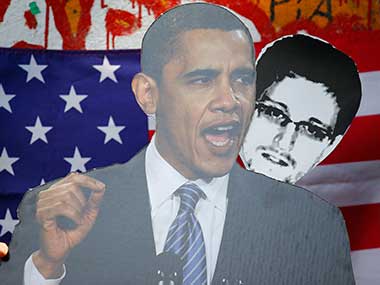Edited By Philip Lawler

The Cold War did not die with the collapse of the Berlin Wall. Today, the fighting continues with cyberattacks and information control. The main players are the United States and China, with Russia caught in the middle. The European states, like so many others, have little to no role in the conflict. Barack Obama said that America will do everything to ensure that Edward Snowden, the “Datagate” mole, is brought to justice. But Washington, in a short period of time, is addressing two insults: one from China and another from Russia. Snowden, for now, is sleeping — at least somewhat — soundly and remains in Russia, waiting to be transferred to God-knows-where.
The Russian Foreign Minister, Sergei Lavrov, rejected the sender of Washington’s accusations regarding “Datagate”: “We consider the attempts to accuse the Russian side of violating U.S. laws, and practically of involvement in a plot, to be absolutely groundless and unacceptable.” The chief diplomat of Moscow reiterated that the Russians “are in no way involved with either Mr. Snowden, his relations with U.S. justice, or his movements around the world.” Snowden “chose his itinerary on his own. We learnt about it from the media,” he added, clarifying that the mole of Datagate “has not crossed the Russian border.”
Meanwhile, the U.S. secretary of state, John Kerry, has asked Russia to maintain its “calm” and to surrender Edward Snowden, who is wanted for espionage, to the United States, stating that Washington is not looking for a “confrontation.” Kerry, during a visit in Saudi Arabia, highlighted that the delivery of the former United States National Security Agency employee is a question of respecting the law.
Even Beijing is defending itself: “It is unreasonable for the United States to question Hong Kong’s handling of affairs in accordance with the law,” said spokesman of the Foreign Ministry, Hua Chunying. “The accusation against the Chinese central government is groundless. China cannot accept that,” he added. Regarding Snowden’s “flight,” White House Spokesman Jay Carney has accused Beijing of failing to “honor their legal extradition obligations,” while the spokesman of the Department of State spoke of a “serious setback” regarding relations between the U.S. and China. Hillary Clinton, the former U.S. secretary of state, expressed her harsh judgment toward China when she said: “That kind of action is not only detrimental to the U.S.-China relationship but it sets a bad precedent that could unravel the intricate international agreements about how countries respect that laws — and particularly the extradition treaties.”
The tug-of-war continues. In a brief statement, Vladimir Putin spoke coldly to the United States: “Snowden is a free man, he did not commit any crimes in Russia.” He then added: “The sooner he chooses his final destination the better it will be for all of us.” He made it clear that Russia does not want anything to do with the mole. He also assured that “our special services have never worked with Mr. Snowden and are not working with him today.”

Leave a Reply
You must be logged in to post a comment.